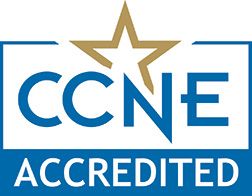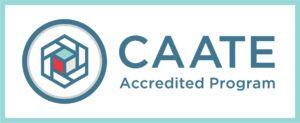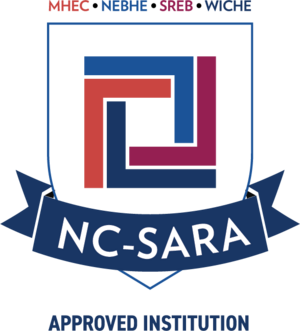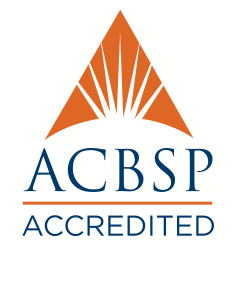Academic Accreditations
The academic programs of Limestone University are conducted within the framework of three colleges: College of Liberal Arts and Sciences, College of Business, and College of Education and Health Professions. Those schools offer baccalaureate and/or associate degrees.
Institutional Accreditation (SACSCOC)
Limestone University is accredited by the Southern Association of Colleges and Schools Commission on Colleges (SACSCOC) to award associate, baccalaureate, and masters degrees. Limestone University also may offer credentials such as certificates and diplomas at
approved degree levels. Questions about the accreditation of Limestone University may be directed in writing to the Southern Association of Colleges and Schools Commission on Colleges at 1866 Southern Lane, Decatur, GA 30033-4097, by calling (404) 679-4500, or by using information available on SACSCOC’s website (www.sacscoc.org).
SC State Department of Education Teacher Certification
Limestone also meets the certification standards required by the South Carolina State Department of Education for teacher certification.

Council for the Accreditation of Educator Preparation (CAEP)
The Teacher Education Program at Limestone University is accredited by the Council for the Accreditation of Educator Preparation (CAEP). caepnet.org This accreditation covers initial teacher preparation programs at the Gaffney, South Carolina site. However, the accreditation does not include individual education courses that the institution offers to P-12 educators for professional development, re-licensure, or other purposes.

Nursing Program
The baccalaureate degree program in nursing at Limestone University is accredited by the Commission on Collegiate Nursing Education, 655 K Street NW, Suite 750, Washington, DC 20001, 202-887-6791

Council on Social Work Education
Limestone University’s MSW program is accredited by the Council on Social Work Education’s Board of Accreditation. For more information about social work accreditation, please visit the CSWE website, https://www.cswe.org/accreditation.

National Association of Schools of Music (NASM)
The music program is accredited by the National Association of Schools of Music (NASM).
11250 Roger Bacon Drive, Suite 21
Reston, VA 20190-5248
(703) 437-0700 Phone
(703) 437-6312 Fax
info@arts-accredit.org

Commission on Accreditation of Athletic Training Education (CAATE)
Limestone University's Athletic Training Program is accredited by the Commission on Accreditation of Athletic Training Education (CAATE), 2001 K Street NW, Third Floor North, Washington, DC 20006.

NC-SARA
Limestone University has been approved to participate in the National Council for State Authorization Reciprocity Agreements.
Licensure Disclosure
Professional Licensure Information
NC-SARA membership does not grant reciprocity or exemption from state professional licensing board requirements. Limestone University graduates meet eligibility requirements for professional licensure in South Carolina. Prospective students residing in other states who are interested in an online academic program from Limestone University should inquire with the appropriate licensing agency in their home state to determine if the program will meet eligibility requirements for licensure or certification. Graduates must complete professional licensure and certification requirements in the state of their residency. Contact information for state licensing agencies for Limestone University programs that might lead to licensure or certification in other states can be found on the NC-SARA Professional Licensure Directory.
Limestone University's 100% online programs that lead to certification include: BS in Social Work and the MS in Social work programs. Graduates of either of these two programs who are SC residents may apply for licensure through the SC Labor and Licensing Regulation – Board of Social Work Examiners at https://llr.sc.gov/sw/
Student Complaints
Students enrolled in academic programs at Limestone University who wish to file a complaint should first file a complaint with Limestone University by submitting the complaint form found here.
If the complaint is not resolved by Limestone University, students residing in an NC-SARA member state may file a complaint with the South Carolina Commission on Higher Education (SCCHE). The SCCHE will only consider complaints that were previously unresolved by the University. The SCCHE policy and procedures information is found here.
Memberships
- The Council of Higher Education Accreditation (CHEA)
- Council of Independent Colleges (CIC)
- South Carolina Independent Colleges and Universities (SCICU)
- South Carolina Association of Colleges and Employers (SCACE)
- National Association of Independent Colleges and Universities (NAICU)
- Council for the Advancement and Support of Education (CASE)
- National Collegiate Athletic Association (NCAA)
- South Atlantic Conference
- Conference Carolinas (associate member in Acrobatics and Tumbling)
Business Accreditation
Limestone University's Bachelor of Science in Business Administration and Master of Business Administration programs were accredited by the Accreditation Council for Business Schools and Programs (ACBSP) in 2017. ACBSP (https://acbsp.site-ym.com) is a specialized global business accreditation body following the Baldrige model focused on teaching excellence and continuous improvement. ACBSP evaluates business programs in areas of leadership, strategic planning, stakeholder relationships, quality of academic programs, faculty credentials, and quality improvement.

